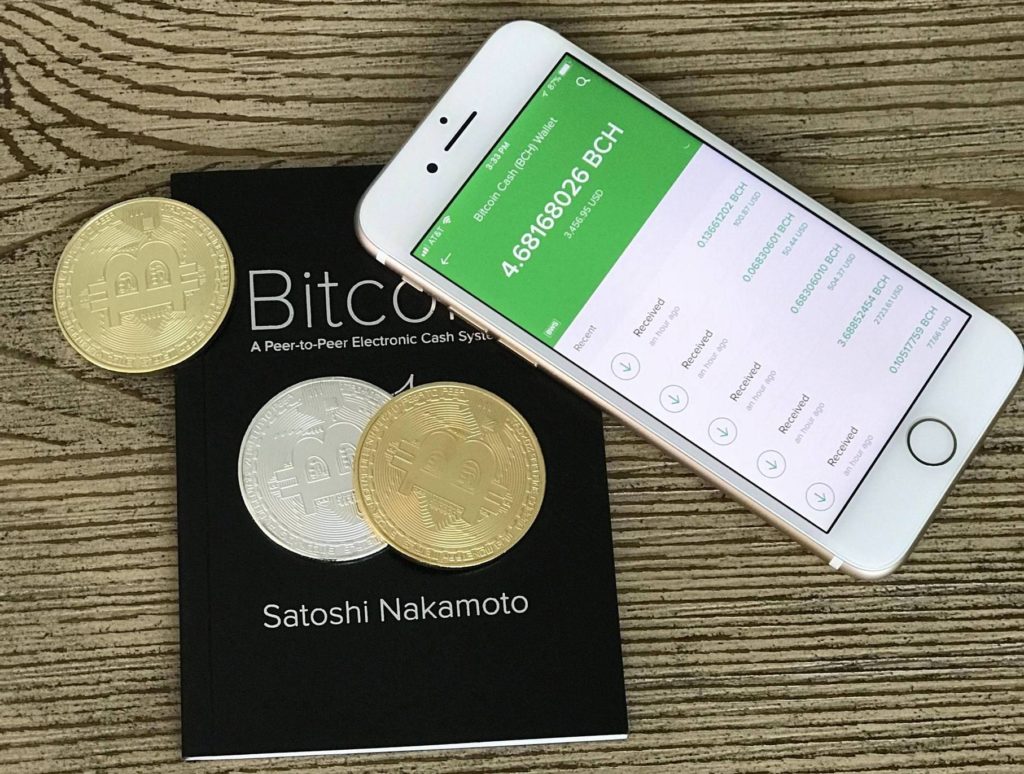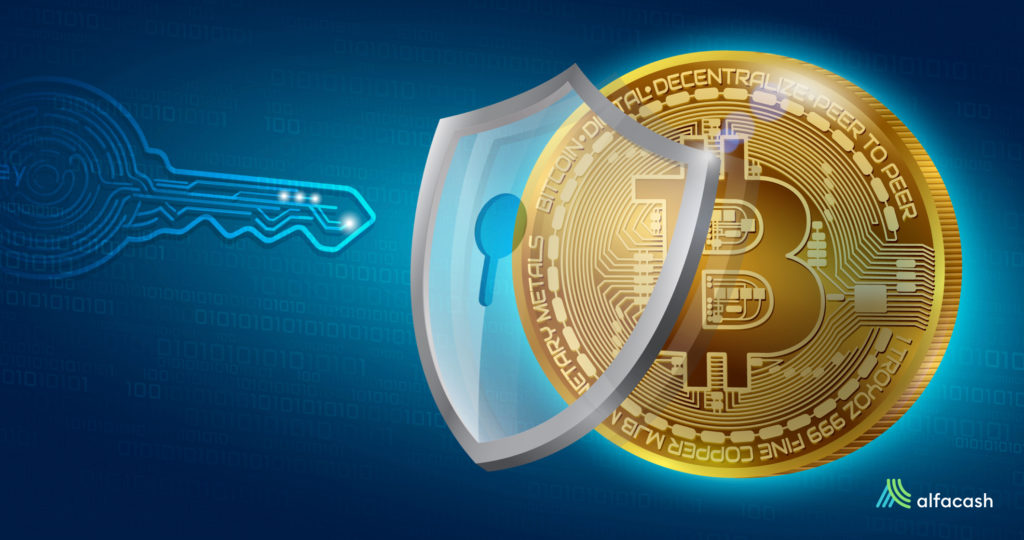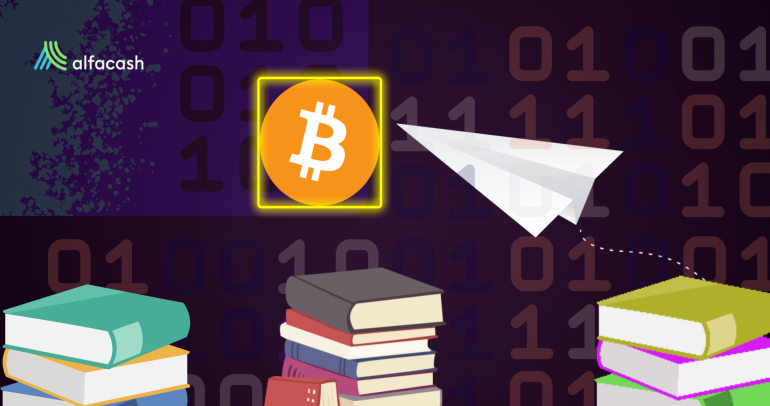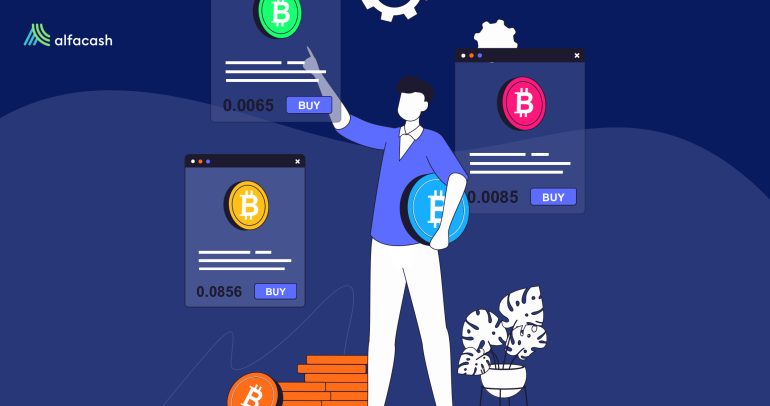Let’s put this clear in the first place: BitcoinBitcoin is the first decentralized digital currency. It was created in 2009, by an anonymous founder or group of founders... More (BTCAn abbreviation for Bitcoin.) isn’t anonymous. That’s only a myth. You need to know that every single transactionA cryptocurrency transaction is an entry on the blockchain ledger, noting sender, receiver and number of coins transacted. More is publicly registered with all related data on the blockchainBlockchain is a type of database storing an immutable set of data, verifiable to anyone with access to it —through... (visible through the Internet). However, there are some methods you can use to make more private transactions with Bitcoin.
Of course, we also need to consider that privacy doesn’t mean anonymity. Fully anonymous transactions aren’t available yet on the Bitcoin network, and hardly in some altcoins. Monero (XMR) has been the more private so far, and even so, the authorities are investigating techniques to break that privacy.

If you need, for example, keeping commercial trade secrets, pay for private medical procedures, stay safe from physical attacks, or prevent that average people and advertisers find out about your spending habits; these actions when using Bitcoin can help you nicely. Discover them!
Some basic measures for privacy
The storage is important. If you’re using custodial cryptocurrencyA digital currency running on a blockchain and built with cryptography. Contrary to central-bank issued currency, cryptocurrency issuance rules are... More exchanges or hot wallets to keep your coins, then your transactions are easily traceable. They also have your personal data (for KYC/AML measures). So, even if Bitcoin uses alphanumerical addresses instead of names, it won’t be difficult to connect your transactions with your identity. Indeed, exchanges like Coinbase are known to give information about their clients to the government.
And how do you know if an exchange is “custodial”? Easy. Do you have your own walletA crypto wallet is a user-friendly software or hardware used to manage private keys. There are software wallets for desktop... More with a private keyA cryptographic key that is used with an algorithm to encrypt and decrypt data. A cryptocurrency private key lets you... More —around 12 words to recover it elsewhere? If you don’t, and you should manage everything inside their platform, then it’s custodial. Non-custodial exchanges, like Alfacash, don’t have any control over your cryptocurrencies.

Another thing you must do to make private transactions with Bitcoin is taking advantage of the addresses. They work to receive and send funds, like bank account numbers, but they’re disposable. Therefore, you can use a Bitcoin addressAn address is a blockchain equivalent to a bank account number in the traditional financial system, or an email address.... More only once, for one transaction, and never use it again. Your (non-custodial) wallet can provide you with new different addresses by request. Then, if someone checks on the address, they’ll just find one transaction and nothing else.
Beyond Bitcoin itself, hiding your IP address (your computer’s online identity) is also essential. It can reveal your geolocation (not exact, but still), your online activity, and your Internet Service Provider (ISP), which knows who you are —because you hired them. Luckily, you can use a Virtual Private Network (VPN) to hide your IP address easily. It may sound complicated, but VPNs are only user-friendly desktop tools or mobile apps.
Private Bitcoin full nodeA blockchain node is a server that downloads the history of transactions and shares it with other nodes in the... More + Tor
A Bitcoin full node is kind of a super-wallet, so to say. Anyone can install it, but not everyone wants to because it might be cumbersome, and it needs a lot of space and resources in a computer (it’s an entire copy of the blockchain, after all). However, with a full node, the transactions are safer, faster, and much more private.
By using a Bitcoin full node, the user can vote on any proposed changes for the code, and they help to secure the network. They won’t need either to rely again on third parties (i.e. wallet brands) to store and transact privately with their coins.
On the other hand, Tor is open-source software for anonymous communications. A Tor browser is available, and it’s also a built-in feature inside the privacy-focused Brave Browser. Tor can be effortlessly integrated with Bitcoin Core (the most popular client for full nodes) to achieve higher privacy. No transactions will be connected to your online activity when using it because it leaves no traces.
To easily install a private Bitcoin full node with Tor integrated, you can find gadgets like myNode One, which is a nice hardware package. It includes the device itself, the power supply, 16GB SD card, 1TB external HDD, and the necessary software. It’s also a Lightning Network node, and the user can access BTC Pay Server, Tor, Whirlpool, and other features.
Privacy-focused bitcoin wallets
If you don’t want to go through the problem to install a Bitcoin full node, there are alternatives. Wallets like Samourai, JoinMarket, or Wasabi are privacy-focused by using the protocol CoinJoin. As the name suggests, this mechanism combines all the users’ coins into large transactions with multiple origins and destinies.
So, in the end, CoinJoin makes it very difficult for third parties to determine where the initial transactions came from and where they specifically went. Whirpool (mentioned in the last section) is the CoinJoin implementation made by Samourai. This “mixing” service on these wallets is paid, though. For example, Samourai takes a flat fee depending on how many times they “mix” the coins. Meanwhile, Wasabi takes a 0.003% fee per mixed transaction.

Additionally, you can also acquire a hardware wallet. They are small devices that keep the funds out of the Internet, for higher security and privacy. They’re usually the most secure type of crypto wallet. Non-custodial. They can support multiple currencies, and your data is more private (as long as the provider doesn’t get hacked).
The downsides are mainly in the convenience (you probably won’t be able to transfer funds as fast as on mobile) and the prices. That depends on the wallet and the brands, though. Popular providers are LedgerA ledger is like a spreadsheet keeping track of which addresses own how many bitcoins. The Bitcoin blockchain is a... More, Trezor, KeepKey, Ballet, D’CENT, and BitBox. All of them offer different devices, with different security and easy-to-use levels. The prices vary from $23 to $2.000.
Lightning Network
You must’ve heard already something about this one. LN is a micro-payment network for instant and private transactions outside the Bitcoin blockchain. When using this mechanism, the involved parties open a private payment channel between them. They can transact with each other instantly, almost without fees, and privately. Plus, the amount traded can be as small as 1 satoshi (0.0000001 BTC).
Since this is done outside the main blockchain, the transactions aren’t registered or public until the channel is closed for good by the decision of the participants. Then, only two transactions are registered on the blockchain: the opening and the closure. This technique has been very useful for digital tips, instant payments, and even in-game features.
To use LN, it’s necessary to have a proper wallet with an integrated function. Among them, we have Zap, Éclair, HTLC, and LND by Lightning Labs. The latter company, by the way, also offers a pool of channels, and a tool to keep the channels open indefinitely (Loop).
Bitcoin mixers
They might sound like CoinJoin now, and they’re indeed similar, but not the same. Also dubbed tumblers or launders, the mixers are services on the Darknet, accessible through Tor, in which your coins are mixed with many others, several times and in different amounts, to “wash” all the traces. On the outside, the user sends them the amount they want to mix, pays the fee for it, and waits for them to send it back without traces.

Tumblers take a percentage transaction feeTo reward miners or validators for the work of ordering transactions and verifying blocks, a certain cost must be paid... More of the total coins mixed to turn a profit, typically 1–3%. Examples of these services are BitBlender, CoinMixer, Helix, BitLaunder, and Bitcoin Fog. Now, does this suspiciously sound like money laundering on the Darknet? Some authorities might think so. That’s why you must first pay attention to your local laws. For example, the U.S. Department of Justice considers illegal cryptocurrency mixers.
Checking Bitcoin private transactions
The Blockchair explorer can help you to discover if your transaction has some privacy issues. This platform has a free “Privacy-o-meter”, visible for every searched transaction. The tool checks indicators like reutilized addresses, round numbers, how many addresses have been used, script types, and the order of inputs and outputs.
The user only needs to paste the transaction ID and wait for the results. They rate every transaction from 0 to 100 and describe the vulnerabilities. It also provides some ways to fix them. According to the webpage:
“We use 100+ indicators to measure the privacy scores of Bitcoin transactions. In some cases, the score may be improved, while some indicators are dependent on the software used to interact with the Bitcoin blockchain. Such privacy issues are not possible to fix unless the user changes the app or website used.”
Besides, they offer some basic recommendations: don’t send round numbers, use bitcoin mixers and CoinJoin, avoid reusing wallets (addresses), don’t include many of your addresses in one transaction, and avoid the “send everything” option, unless it’s for crypto-exchanges withdrawals. Maybe this isn’t a magic recipe for anonymity, but it can help you a lot to increase your privacy with Bitcoin transactions, and even with other cryptocurrencies as well.
Wanna trade Bitcoin and other tokens? You can do it safely on Alfacash! And don’t forget we’re talking about this and a lot of other things on our social media.
Twitter * Telegram * Facebook * Instagram * Youtube * Vkontakte








